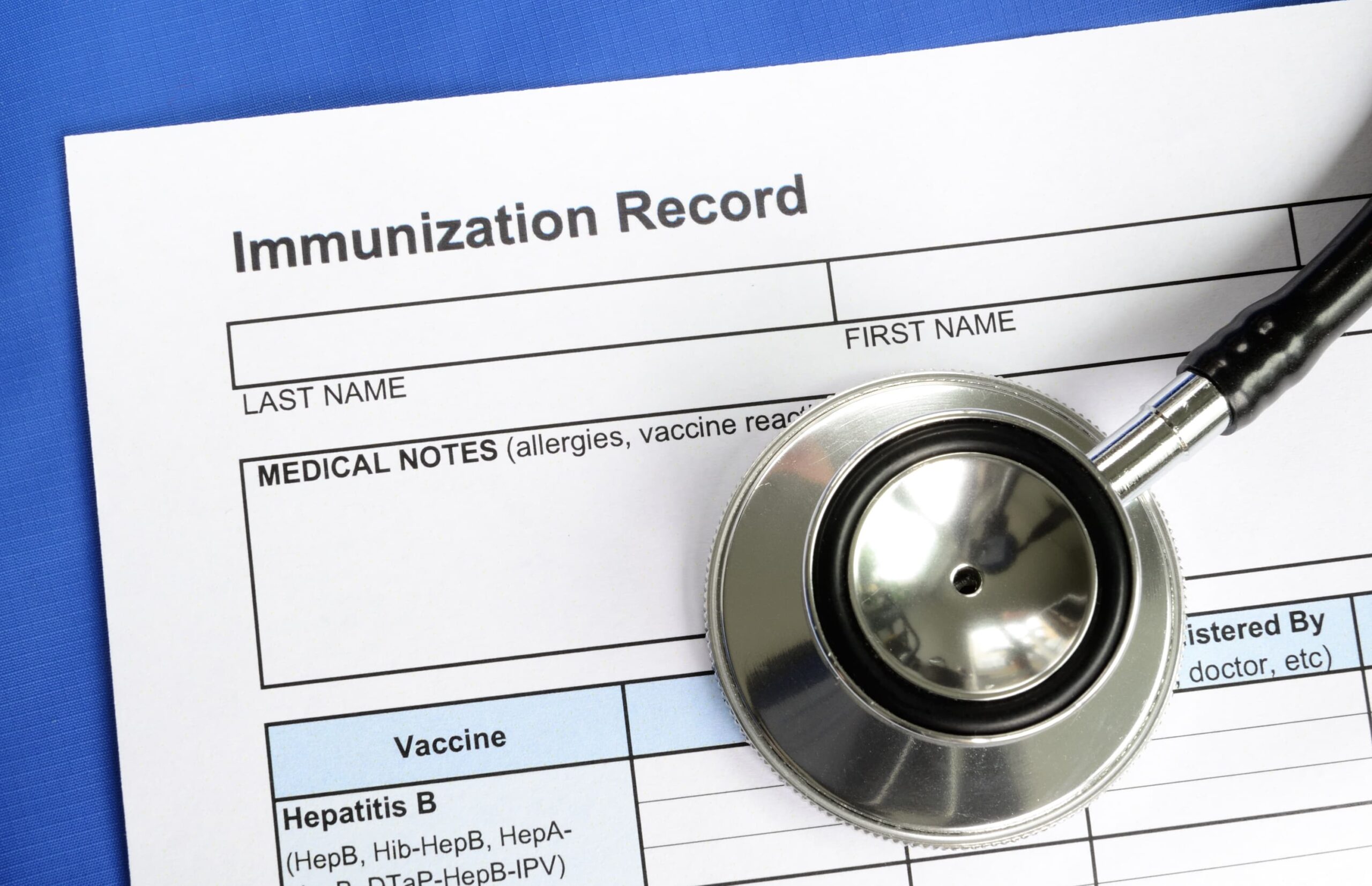A Holistic View Of Anemia Includes More Than Iron & B12
Anemia is a condition where the body doesn’t have enough red blood cells to transport oxygen to the tissues. The most prominent symptom of anemia is fatigue. Other symptoms may include weakness, cold hands and feet, heart palpitations, dizziness, headaches, shortness of breath, and more.
Micronutrient deficiencies are just one of many causes of anemia. However, micronutrient deficiencies can worsen or complicate anemia of any cause. Iron and vitamin B12 are the most common micronutrient deficiencies associated with anemia. However, folate, zinc, vitamin A, vitamin C, vitamin B2, copper, and molybdenum may also play a role in anemia.
A varied diet and healthy digestion are important for the prevention of micronutrient deficiency induced anemia. Diet changes may correct mild cases of micronutrient deficiency, but in some cases supplementation may be required.
Micronutrient Deficiencies Associated With Anemia
1. Iron
Iron deficiency is by far the most common cause of anemia. Iron is required for the formation of hemoglobin, the molecule in red blood cells that carries oxygen through the body. A lack of iron results in red blood cells that are too small. This type of anemia is called microcytic anemia.
2. Vitamin B12
Vitamin B12 is the second most common cause of anemia. Vitamin B12 is required for the formation of red blood cells. A deficiency results in red blood cells that are too large. This type of anemia is called macrocytic anemia.
3. Folate
Folate plays a similar role to vitamin B12 in the formation of red blood cells. Because folate deficiency also causes red blood cells to be too big, folate deficiency anemia can be mistaken for vitamin B12 deficiency and vice versa. The two deficiencies can also coexist. Many integrative doctors recommend supplementing with folate at the same time as vitamin B12 when treating macrocytic anemia.
4. Vitamin A
Vitamin A is important for iron metabolism. Vitamin A is also required for the creation of new blood cells. If vitamin A is playing a role in anemia, there may be low levels of white blood cells as well as red blood cells as well as other Vitamin A deficiency symptoms.
5. Zinc
Zinc is important for iron metabolism. Zinc is also important for vitamin A transport and utilization. Zinc supplementation may be required to reverse anemia associated with vitamin A deficiency. Zinc deficiency commonly coexists with iron deficiency, especially in vegetarian diets and in people with digestive concerns that make nutrient absorption less efficient.
6. Vitamin C
Vitamin C plays a role in both iron metabolism and in red blood cell formation. Vitamin C is often found in iron supplements because it improves the absorption of iron. If a vitamin C deficiency exists, additional supplementation through food or supplement would be necessary.
7. Vitamin B2 – Riboflavin
Riboflavin is important for both iron absorption and red blood cell formation. Low levels of riboflavin increase the risk of iron deficiency anemia.
8. Copper
Copper is important for the formation of hemoglobin, for the creation of red and white blood cells, and for the absorption of iron in the gut. If copper is playing a role in anemia there will likely also be low levels of white blood cells and other copper deficiency symptoms.
9. Molybdenum
Molybdenum is a trace mineral and deficiency is very rare. However, it has been shown that molybdenum supplementation may help reverse iron deficiency anemia. The mechanism is unknown, but researchers suspect that molybdenum dependent enzymes play a role in iron metabolism.
Resolving Micronutrient Deficiencies Associated With Anemia
Anemia is most often treated with iron or B12 depending on which type of anemia is present. For most people this treatment resolves the problem within a couple months. However, if the anemia is complicated by other underlying nutrient deficiencies, simple iron or B12 supplementation may not be enough.
An integrative doctor can assess you for deficiencies of folate, vitamin A, zinc, copper, vitamin B2, and vitamin C and recommend a supplementation protocol to support that. If the clinical picture is complicated, a multivitamin may be recommended to cover all bases. If deficiencies seem severe and/or if digestion is impaired, intravenous nutrients may be recommended.
Molybdenum deficiency isn’t usually assessed. It doesn’t appear that molybdenum needs to be deficient in order for this treatment to help resolve anemia. Instead molybdenum supplementation is sometimes tried in treatment-resistant microcytic anemia to see if there is any improvement.
Iron and vitamin B12 are the nutrients that most commonly cause anemia when they are low. Supplementing with just one of these nutrients can usually resolve anemia and restore healthy red blood cell levels and function. However, in some cases, other micronutrient deficiencies may play a role, and these should be considered in cases that don’t respond as well as expected to iron or B12 treatment.
Summary
Iron and B12 are the micronutrient deficiencies most often associated with anemia. However, vitamin A, zinc, folate, vitamin C, copper, riboflavin, and molybdenum may also play a role and should be considered in anemia cases that don’t respond well to simple iron or B12 supplementation.
References:
Petry, N., Jallow, B., Sawo, Y., Darboe, M. K., Barrow, S., Sarr, A., Ceesay, P. O., Fofana, M. N., Prentice, A. M., Wegmüller, R., Rohner, F., Phall, M. C., & Wirth, J. P. (2019). Micronutrient Deficiencies, Nutritional Status and the Determinants of Anemia in Children 0-59 Months of Age and Non-Pregnant Women of Reproductive Age in The Gambia. Nutrients, 11(10), 2275. https://doi.org/10.3390/nu11102275
Nynke van den Broek, Anaemia and micronutrient deficiencies: Reducing maternal death and disability during pregnancy, British Medical Bulletin, Volume 67, Issue 1, December 2003, Pages 149–160, https://doi.org/10.1093/bmb/ldg004
Chan, L. N., & Mike, L. A. (2014). The science and practice of micronutrient supplementations in nutritional anemia: an evidence-based review. JPEN. Journal of parenteral and enteral nutrition, 38(6), 656–672. https://doi.org/10.1177/0148607114533726
Jamil, K. M., Rahman, A. S., Bardhan, P. K., Khan, A. I., Chowdhury, F., Sarker, S. A., Khan, A. M., & Ahmed, T. (2008). Micronutrients and anaemia. Journal of health, population, and nutrition, 26(3), 340–355. https://doi.org/10.3329/jhpn.v26i3.1900
Li, N., Zhao, G., Wu, W., Zhang, M., Liu, W., Chen, Q., & Wang, X. (2020). The Efficacy and Safety of Vitamin C for Iron Supplementation in Adult Patients With Iron Deficiency Anemia: A Randomized Clinical Trial. JAMA network open, 3(11), e2023644. https://doi.org/10.1001/jamanetworkopen.2020.23644
de Almeida, C. A., De Mello, E. D., Ramos, A. P., João, C. A., João, C. R., & Dutra-de-Oliveira, J. E. (2014). Assessment of drinking water fortification with iron plus ascorbic Acid or ascorbic Acid alone in daycare centers as a strategy to control iron-deficiency anemia and iron deficiency: a randomized blind clinical study. Journal of tropical pediatrics, 60(1), 40–46. https://doi.org/10.1093/tropej/fmt071
Grech B. J. (2021). Mechanistic insights into the treatment of iron-deficiency anemia and arthritis in humans with dietary molybdenum. European journal of clinical nutrition, 75(8), 1170–1175. https://doi.org/10.1038/s41430-020-00845-7
Semba, R., Bloem, M. The anemia of vitamin A deficiency: epidemiology and pathogenesis. Eur J Clin Nutr 56, 271–281 (2002). https://doi.org/10.1038/sj.ejcn.1601320
Abdelhaleim, A. F., Abdo Soliman, J. S., Amer, A. Y., & Abdo Soliman, J. S. (2019). Association of Zinc Deficiency with Iron Deficiency Anemia and its Symptoms: Results from a Case-control Study. Cureus, 11(1), e3811. https://doi.org/10.7759/cureus.3811
Sultana, T., DeVita, M. V., & Michelis, M. F. (2016). Oral vitamin C supplementation reduces erythropoietin requirement in hemodialysis patients with functional iron deficiency. International urology and nephrology, 48(9), 1519–1524. https://doi.org/10.1007/s11255-016-1309-9
Kontoghiorghes, G. J., Kolnagou, A., Kontoghiorghe, C. N., Mourouzidis, L., Timoshnikov, V. A., & Polyakov, N. E. (2020). Trying to Solve the Puzzle of the Interaction of Ascorbic Acid and Iron: Redox, Chelation and Therapeutic Implications. Medicines (Basel, Switzerland), 7(8), 45. https://doi.org/10.3390/medicines7080045
Fukushima, T., Horike, H., Fujiki, S., Kitada, S., Sasaki, T., & Kashihara, N. (2009). Zinc deficiency anemia and effects of zinc therapy in maintenance hemodialysis patients. Therapeutic apheresis and dialysis : official peer-reviewed journal of the International Society for Apheresis, the Japanese Society for Apheresis, the Japanese Society for Dialysis Therapy, 13(3), 213–219. https://doi.org/10.1111/j.1744-9987.2009.00656.x
Myint ZW, Oo TH, Thein KZ, Tun AM, Saeed H. Copper deficiency anemia: review article. Ann Hematol. 2018 Sep;97(9):1527-1534. doi: 10.1007/s00277-018-3407-5. Epub 2018 Jun 29. PMID: 29959467.
Chin A. (2018). Copper Deficiency Anemia and Neutropenia Due to Ketogenic Diet. Pediatrics, 141(5), e20173286. https://doi.org/10.1542/peds.2017-3286
Stashower, J., Pollack, K., & Flowers, R. H. (2022). Severe anemia and copper deficiency in a patient treated with supplemental zinc for hidradenitis suppurativa. International journal of dermatology, 61(3), e116–e117. https://doi.org/10.1111/ijd.15652
Scheiber, I., Dringen, R., & Mercer, J. F. (2013). Copper: effects of deficiency and overload. Metal ions in life sciences, 13, 359–387. https://doi.org/10.1007/978-94-007-7500-8_11
Wazir, S. M., & Ghobrial, I. (2017). Copper deficiency, a new triad: anemia, leucopenia, and myeloneuropathy. Journal of community hospital internal medicine perspectives, 7(4), 265–268. https://doi.org/10.1080/20009666.2017.1351289
Mahabadi N, Bhusal A, Banks SW. Riboflavin Deficiency. [Updated 2022 Jan 30]. In: StatPearls [Internet]. Treasure Island (FL): StatPearls Publishing; 2022 Jan-. Available from: https://www.ncbi.nlm.nih.gov/books/NBK470460/
Shi, Z., Zhen, S., Wittert, G. A., Yuan, B., Zuo, H., & Taylor, A. W. (2014). Inadequate riboflavin intake and anemia risk in a Chinese population: five-year follow up of the Jiangsu Nutrition Study. PloS one, 9(2), e88862. https://doi.org/10.1371/journal.pone.0088862








